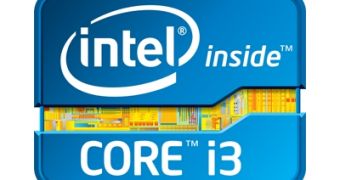For a long time, Intel has mainly avoided to reduce the prices of its central processing units, except when a new line of chips was inbound and previous-generation units had to be sold quickly.
One set of CPUs that Intel has been stubbornly refusing to sell for less is the Core i3 mobile series, the one found in ultrabooks.
Even though Chipzilla, aided by its manufacturing partners, has been trying to bring ultrabook prices down, with varying degrees of success, it focused on design changes and other hardware compromises.
Now, though, certain parties are almost, if not completely, certain that a reduction in cost for Core i3 CPUs is imminent.
Cody Acree, an analyst with Williams Financial Group, citing Chinese-language Commercial Times newspaper, expects Core i3 ULV (ultra-low voltage) models to start shipping for $25 - $27 less at some point in the near future.
It appears that laptop manufacturers cut one corner too many and Ultrabooks stopped being “ultra” when metal cases were changed for low-quality plastic ones.
Cheaper CPUs will allow Ultrabook manufacturers and vendors to sell such items without having to give up on the aluminum (assuming the super-thin devices aren't banned from the US altogether). That way, there is less chance of the casing cracking and getting buyers to return the item to the store.
Currently, Intel has a single Core i3 chip on sale that has a thermal design power of 17W. Called Core i3-3217U, it is a dual-core with 1.8 GHz clock speed, 3 MB cache and HD 4000 graphics.
The current price of the processor is $225 / 180 Euro, which makes $25 / 20 Euro the equivalent of over 10%.
There is another way of course: keep making them as they are and simply set the tags lower. Alas, the profit margins of actual manufacturers are already low, and efforts are being made to increase them, not lower them.
Finally, AMD's 17W Fusion chips are finally getting the recognition they deserve, and we wouldn't be surprised if they factored in Intel's reported decision. Sleekbooks already exist after all, and Intel's advertising campaign can only go so far against proven performance, not to mention the $599 / 478 Euro price point of AMD-based ultra-like PCs. AMD's design wins have only been going up while ultrabooks dragged themselves forward.

 14 DAY TRIAL //
14 DAY TRIAL //